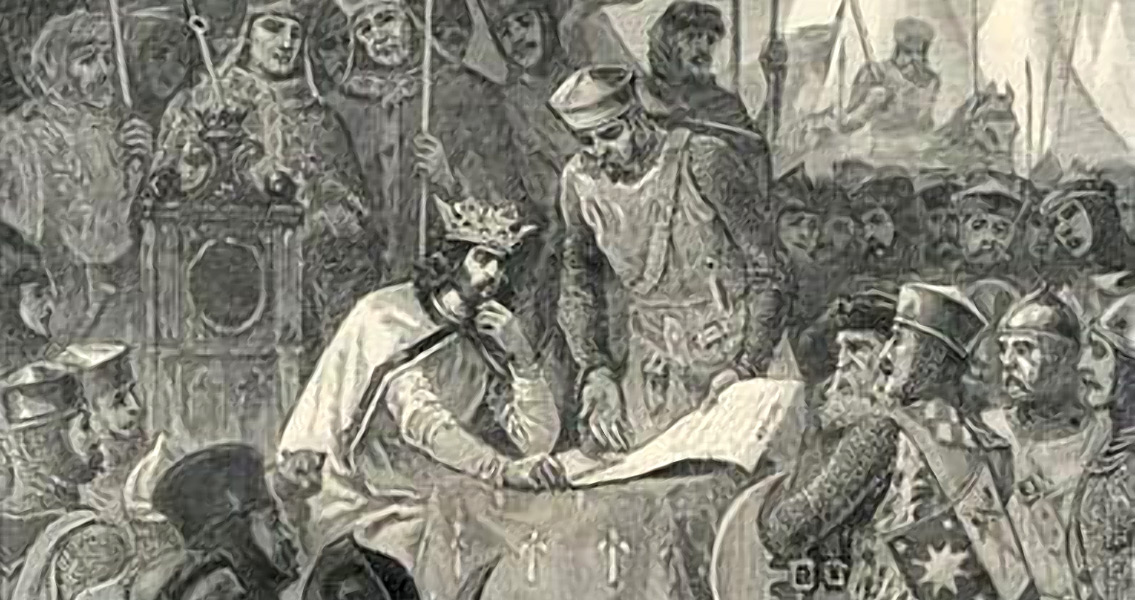<![CDATA[On Saturday a replica of Magna Carta was carried along the River Thames, from Hurley in Berkshire to Runnymede in Surrey, as part of the events marking its 800th anniversary. Sealed by King John on 15th June, 1215, the charter was a peace treaty between the king and his rebelling barons, which went onto be hugely influential politically and legally. Magna Carta's importance lies in the fact that it was essentially the first written constitution in European history. Although the restrictions it put on the king were quite mild in hindsight, it was vital for showing that a monarch's power could be curtailed and he had to answer to his people. Just as importantly, the idea of creating a tangible, physical charter (the Latin name 'Magna Carta' means Great Charter in English) between ruler and subjects was vitally important for the development of modern politics. Much of Magna Carta concerns the feudal rights of barons, and as such has little direct relevance to the modern world. However, it did establish that the king was subject to the same laws as his people, preventing a return to absolutism. The famed Clause 39 stated "no free man shall be arrested or imprisoned or disseised [dispossessed] or outlawed or exiled or in any way victimised…except by the lawful judgment of his peers or by the law of the land." This is considered to have been a crucial development in the enshrining of the rule of law, and a precursor to the guarantee of the right to trial by jury. The charter's influence is just as keenly felt in the United States. The rights laid out in the Magna Carta found their way into the US Bill of Rights and the Constitution. It proved vital in the establishment of the American legal system, and still influences the instructions given by judges to juries in courtrooms across the United States. A baronial rebellion against King John was the direct cause of the Magna Carta. John had been made king in 1199, following the death of his brother, the popular Richard the Lionheart. John's reign was an unpopular one. Military failure saw the duchy of Normandy pass to the French king, while heavy taxation of the barons was used to pay for the failed war. John argued with the papacy, and sold church offices to fill debts in the royal finances. A failed attempt to reclaim Normandy in 1214 proved the final straw, and Stephen Langton, the Archbishop of Canterbury, called on the barons to demand a charter of liberties from the king. The barons responded to Langton's call, and rebelled against the king. Faced with the barons' vastly superior forces, John had no choice but to accept their demands. On 15th June he met the barons at Runnymede, close to the Thames, and set his seal on the charter. It is important not to overstate Magna Carta. John ignored most of his obligations under the charter and civil war erupted later in 1215. Magna Carta had to be reissued several times before it finally entered British statute law in 1225, and even then it was an agreement largely concerned with the interests of the barons, rather than establishing democracy or individual rights. A common misconception is that Magna Carta established Parliament, which it did not. Its significance, and why 800 years later it is being so vigorously celebrated, is becuase it made a small, but crucial first step towards restricting the absolute power of a monarchy, and established the basis for a legal system which is still widely used today. ]]>
Magna Carta
